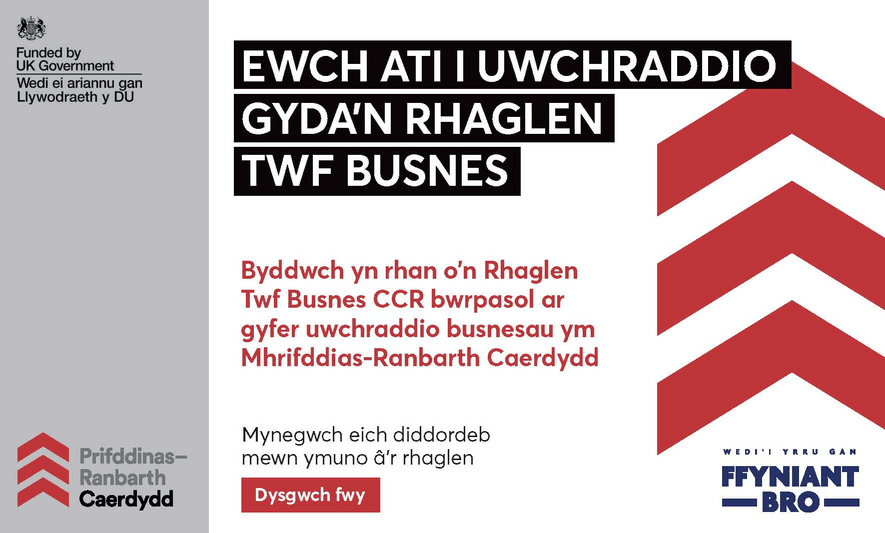The Covid-19 outbreak has seen many companies have to adapt the way they do business. Some have had to close their doors and shift to a digital model, with staff working from home, sales made online and products delivered to the doorstep, delivery drivers naturally making sure they stand well back when they drop off the goods.
For some of these businesses, the move to a more digital model has perhaps brought forward a step that they might have taken in the next few years anyway. Office-based companies in the media, communications and digital sectors have found it particularly easy to make the change.
ThirdSpace, an IT consultancy with offices in Cwmbran and Newport, had a head start because advising organisations on how to work remotely is what it does. But even it was not prepared to fully embrace the virtual office culture and mentality, as HR Manager Sian Nicholas explained.
Sian said:
“For the virtual office approach to work you must adopt a culture of trust – so we made it clear that flexibility around working hours was encouraged. You have to trust that your team will deliver quality work at a high standard, without stipulating that this must all be delivered between 9 and 5.”
Sian pointed out that many people working from home are having to cope with different problems, such as juggling with children off school and supporting their family. ThinkSpace instructed its managers to stress that flexibility was a given; that it was OK to log off and teach the children for a few hours. It then set about building the virtual office culture from the top down.
To kick things off, directors started with company-wide Teams posts to raise spirits, making staff feel important but relaxing the mood with good humour and asking questions which were not work related. “More people got involved with these posts than I had ever seen before. It was like a domino effect,” said Sian.
Managers were encouraged to check in on teammates every day and to post something different – a joke, a story or a work challenge – to check everyone was healthy and well, with the added benefit of lifting team spirits.
Sian added:
“We’ve even found a way to substitute those water cooler moments with a bit of virtual banter. Our Service Desk has started a new ‘though the keyhole’ inspired quiz, ‘Who’s self-isolating in a ThirdSpace like this’ – where every day we post a new picture up of a team member’s home working space and the whole organisation has to guess whose it is. It only takes a few minutes to reply but you learn a lot about your colleagues and it’s a great laugh.”
Monmouth-based social media and marketing consultancy So Social Media has used social media and video chats to reproduce office discussions remotely, making the transition from an office-based company to home working in a matter of hours.
It has replicated the office environment by using video calling through WhatsApp and Zoom to create a digital version of the daily environment, allowing it to work in the same conversational way as normal. This provides staff with a sense of stability, maintaining individual morale and productivity, director Sam Perry said.
He added:
“To support those clients for whom the outbreak has completely removed their primary income source, we have created a crisis package which is fundamentally a repurposed version of our three-month free trial. In doing so we hope to be able to sustain a working relationship with these clients and re-establish a profitable connection once this is viable.”
Communications consultancy Weltch Media’s staff have been working from home since it moved out of offices in the Village Studio, Rhiwbina, Cardiff, several years ago, so it was already geared up to deliver projects remotely before the pandemic started.
Andrew Weltch, senior consultant at Weltch Media, said:
“Right now, we are working on a major web-writing project for a university in London, along with our friends at EMPRA. We’re managing the project in Cardiff, with a talented team of home-based writers across the country – from Hampshire in the south to Swansea in the west and Newcastle upon Tyne in the north.
Several expected projects have been postponed, so we now have more capacity, and we’re ready to help if other organisations need extra communications support during this unprecedented time.”
Many companies in other sectors have adapted in different ways, by turning over part of their facilities and staff to making essential equipment for the health and emergency services. In the food and drinks sector, Hensol Castle Distillery in the Vale of Glamorgan normally makes gin, rum and liqueurs, but has turned over part of its production floor to making hand sanitisers for the NHS and social care providers.
Despite some initial problems getting supplies, the firm is confident it will be able to meet the demand for the sanitisers, which could help prevent front-line workers care workers and health staff, and the vulnerable people they deal with, from contracting the coronavirus.
Managing director Andy Mallows said the distillery was supplying 100ml bottles for care workers to take with them when they travel to see elderly and vulnerable clients in their homes. For the hospitals, the distillery is filling one or 5 litre containers to refill their own bottles or put pump stations on wards.
In Llantrisant in Rhondda Cynon Taf, Britain’s oldest manufacturer the Royal Mint, like other tourist attractions, has had to close its visitor centre and gift shop and cease tours. But it is helping the NHS keep its frontline staff safe by making visors for healthcare workers.
Royal Mint engineers, who are more used to designing the latest in coin technology, turned their hands to developing a medical visor and created one within seven hours. Within 48 hours it was approved for mass manufacture.
The Mint has turned over its visitor café to making the visors, supplying some initially to Cwm Taf Morgannwg University Health Board. Once it has secured enough supplies, it will be producing thousands every day.
Leighton John, director of operations for The Royal Mint, said:
“Last Wednesday we knew nothing about medical visors, but we set our engineers the task of developing essential medical equipment which could be easily made on site – within seven hours they’d created a medical visor, and within 48 hours it was approved for mass manufacture. We’ll shortly post the specifications on our website to enable other firms to make them too.
“We are now developing the production line, and urgently calling for help to source 1.0mm PET clear plastic which is in low supply across the UK. We believe firms will have this in stock, and we’d urge them to get in touch with us so we can continue to support our NHS.”
In the creative sector, TV and film production company Bad Wolf has mobilised its costume department for making scrubs to be used in hospitals.
Costume supervisor Dulcie Scott put together a team of costume designers and makers who had previously worked in the highly successful fantasy series His Dark Materials, aired on the BBC and HBO. They all work from home, some in Cardiff where the company is based, others further afield in Plymouth and the Cotswolds.
Dulcie has been liaising with hospital staff to find out exactly what they need.
“The nature of how the virus is spread means that the demand for scrubs is especially high,” she said.
“Using our professional contacts, we are buying materials at the most reasonable prices possible, but it is still quite a considerable outlay.
Our aim is to keep it local and to supply to the hospitals closest by. This should make things quicker, keep costs down and ideally keep any risk of contagion to a minimum.”
Adaptation is what unites all these companies in their response to the coronavirus outbreak. For some it’s a question of adapting their normal business model to allow them to keep working, when regular workplaces are closed down and non-essential travel officially discouraged. For others that have the capacity, it is doing their bit to help out in a national and human crisis by making essential supplies.
Whatever the adaptation, all these firms are displaying a flexibility and resilience that will benefit them when normal times return. Recovery from the economic impact of the virus may come sooner or later, and may be rapid or protracted. Either way, businesses in Cardiff Capital Region will need all the inventiveness and resourcefulness that many have shown in this crisis.










